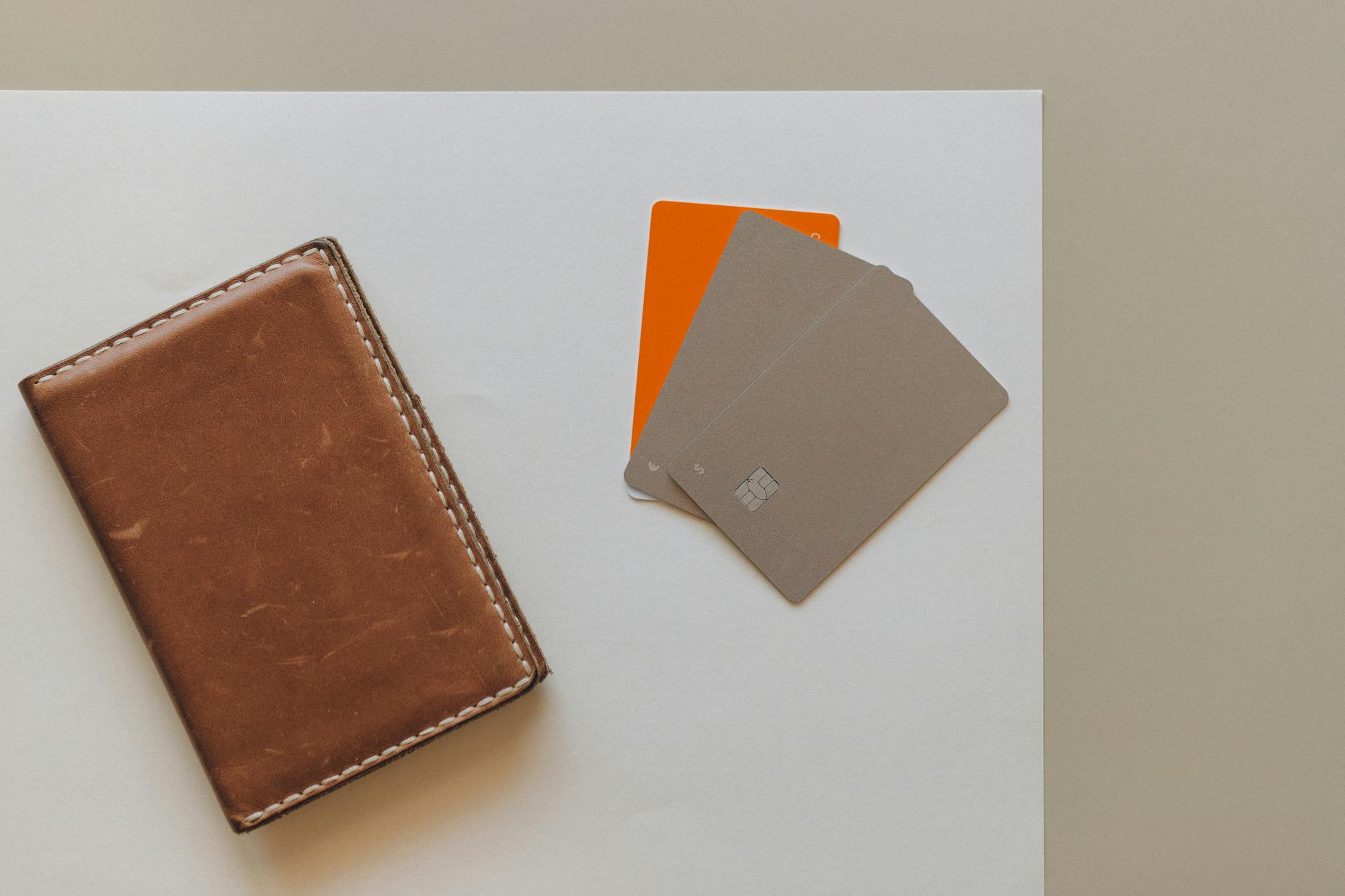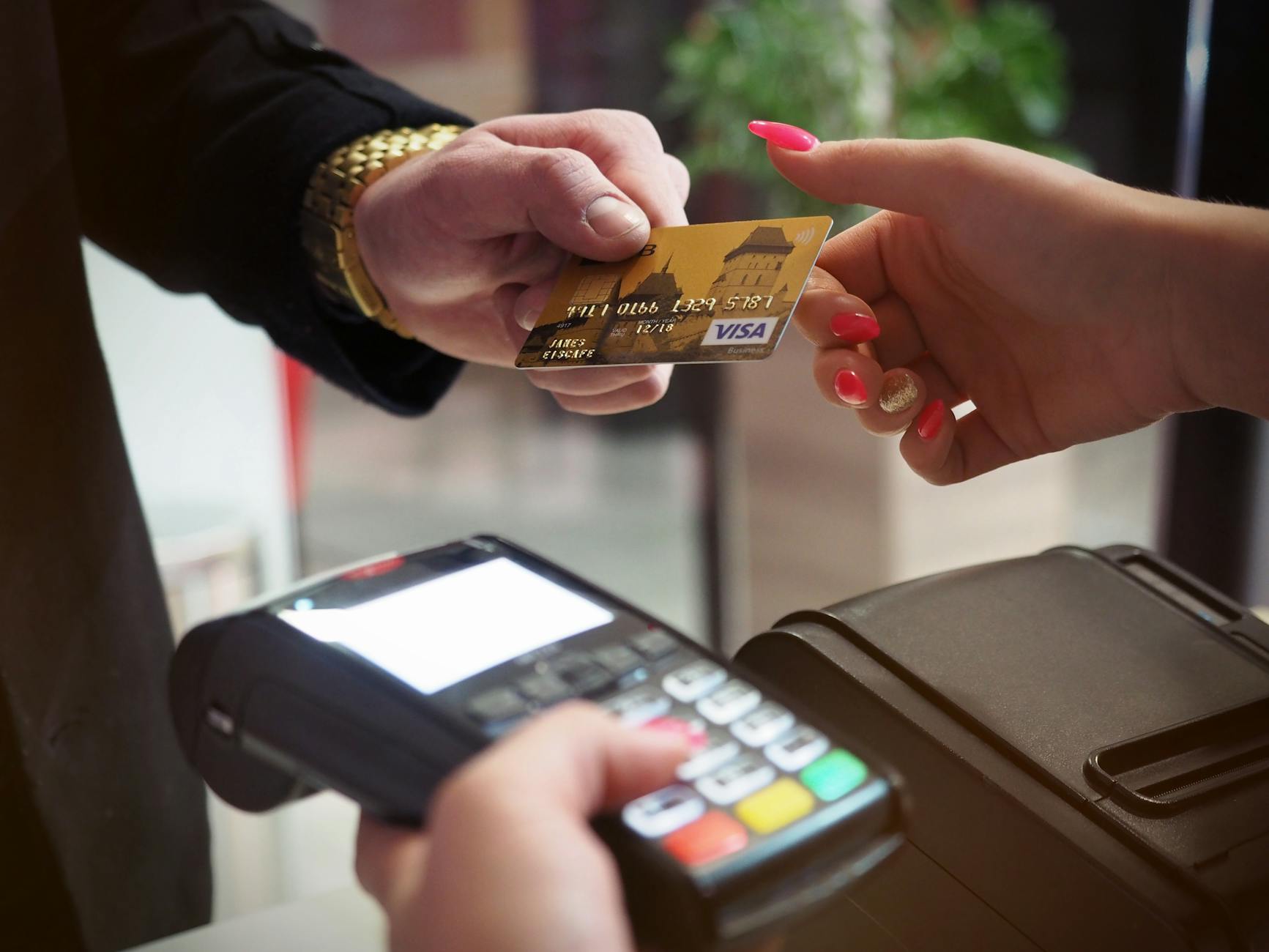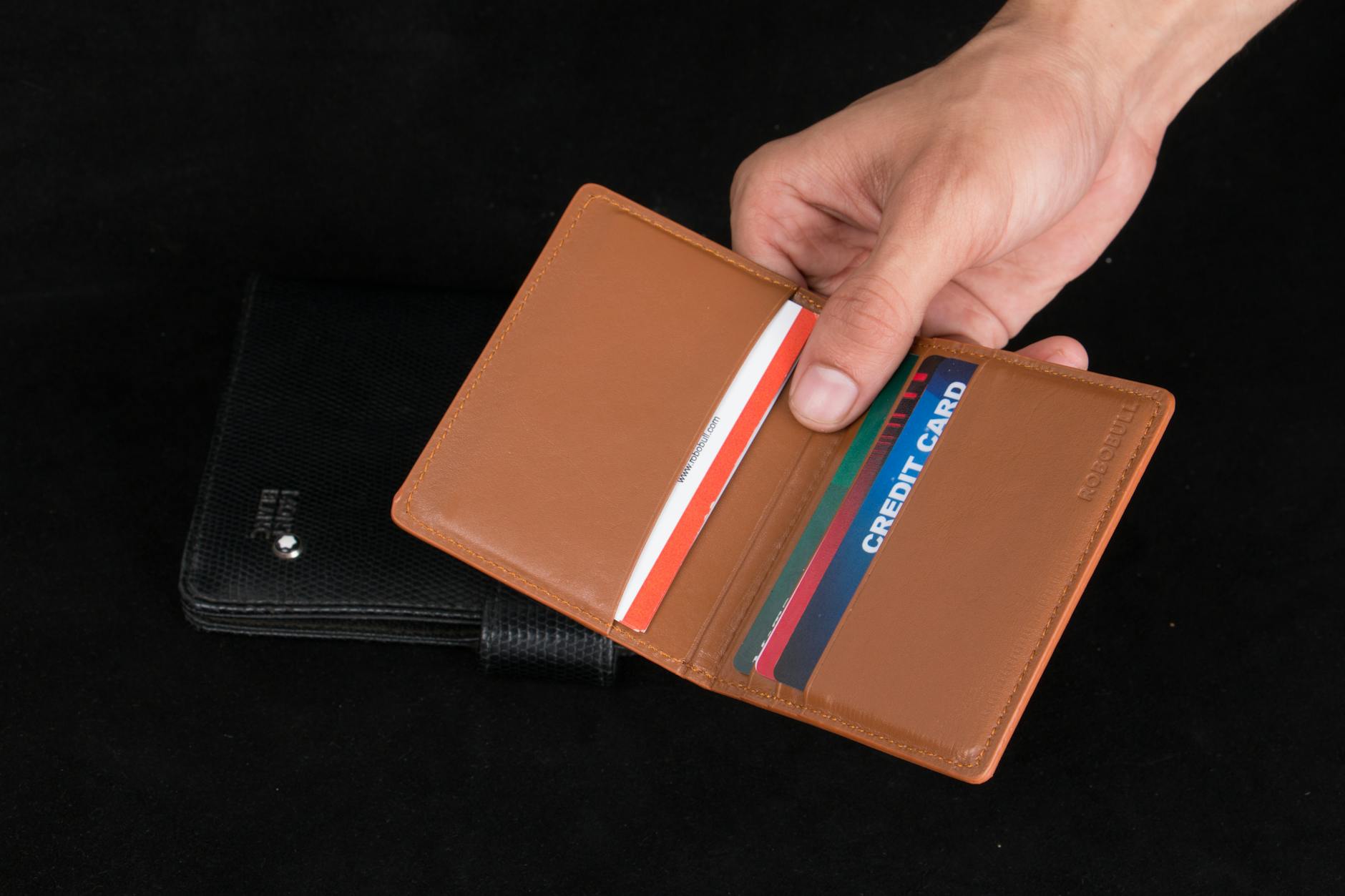Prepaid Cards vs Credit Cards: Which One Fits Your Budget Better?
Prepaid Cards vs Credit Cards: Which One Fits Your Budget Better?
Choosing between prepaid cards and credit cards can feel overwhelming. Both options offer unique benefits, but understanding their key differences is essential for effective personal finance management.
Prepaid cards allow you to spend only what you load onto them, making it easier to budget. On the other hand, credit cards let you make purchases on borrowed money, adding layers of flexibility and potential benefits, like building credit history.
This post will break down what each card offers, helping you determine which best suits your financial style and goals. By weighing factors like fees, usage limits, and financial impact, you can make a more informed choice. So, let’s explore what sets these two types of cards apart and how to choose the one that really fits your needs.
For more insights, check out this video: What is a Prepaid Debit Card? (How Does It Work?) - YouTube
Definition of Prepaid Cards
Prepaid cards are a convenient financial tool. Unlike credit cards, which allow users to borrow money, prepaid cards require you to load funds onto them before you can use them. Essentially, a prepaid card acts like a debit card, but with the critical difference that it is not linked to a bank account. Instead, you deposit money onto the card in advance and then use it until the balance runs out. Once the funds are depleted, you can reload the card with more money or simply stop using it.
How Prepaid Cards Function
The loading process for prepaid cards is straightforward. You can add money to the card through:
- Direct deposit from your paycheck
- Electronic fund transfers from a bank account
- In-person reloads at participating retailers
- Deposits via mobile apps or websites
Spend limits on prepaid cards vary by issuer. Many cards impose a cap on how much you can load or withdraw at a given time, promoting responsible budgeting. You can use prepaid cards for various purchases, both online and in-store, wherever the card network (such as Visa or Mastercard) is accepted.
For example, if you have a prepaid card loaded with $100, you can spend up to that limit. When you reach the limit, the card can't be used until you reload it. This can help to control spending as you cannot go over the amount you’ve loaded.
For further details on how these cards work, you may find this investment guide beneficial.
Advantages of Prepaid Cards
Prepaid cards come with several benefits, making them an attractive option for many consumers:
-
Control Over Spending: Since you can only use the funds you preloaded, there’s no risk of overspending or accumulating debt. This is particularly useful for budgeting or teaching children about money management.
-
No Credit Checks: Prepaid cards do not require a credit check. This means that even if you have a poor credit history, you can still obtain a card, making it an accessible option for many.
-
Safety Features: Many prepaid cards offer protections similar to credit cards, such as fraud protection and PIN security. If the card is lost or stolen, you won’t be liable for unauthorized transactions if you report it promptly.
-
No Bank Account Needed: People without a traditional bank account can still use a prepaid card, providing a way to engage in cashless transactions.
-
Travel-Friendly: Prepaid cards are ideal for travel since they allow you to set a budget and minimize foreign transaction fees. You can load your card with the local currency before a trip.
These cards can certainly streamline financial management without the complexities that come with credit accounts. You can learn more about their benefits in this insightful article on prepaid cards.
Definition of Credit Cards
Credit cards provide a flexible way to make purchases by allowing you to borrow funds from a lending institution, up to a preset limit. The borrowed amount must be paid back, typically by the end of each billing cycle. If you carry a balance from one month to the next, interest charges apply—this is how credit card issuers profit. Understanding the mechanics behind credit cards helps you make informed financial decisions.
How Credit Cards Work
Credit cards operate on a simple principle: you borrow money to pay for goods or services now, with an understanding that you'll repay it later. Here’s a breakdown of key elements:
-
Borrowing Process: When you use your card, the issuer pays the merchant on your behalf. You're then responsible for reimbursing the issuer. This borrowed amount can be repaid in full or in installments.
-
Interest Rates: Most credit cards have an interest rate, often reflected as an Annual Percentage Rate (APR). If you don't pay your balance by the due date, interest accrues, meaning you'll owe more over time. It's critical to understand these rates to avoid debt.
-
Credit Limits: Every card comes with a credit limit, which is the maximum amount you can borrow. This limit is determined based on factors like your credit history and income. Exceeding this limit can lead to penalties and additional fees.
For further insights on how credit cards operate, you can check out this explanatory article.
Advantages of Credit Cards
Credit cards can be advantageous when used wisely. Here are some benefits to consider:
-
Building Credit History: Timely payments help establish your credit history, essential for loans and mortgages.
-
Rewards Programs: Many cards offer rewards like cash back or travel points, incentivizing spending. This can translate into savings or unique experiences.
-
Emergency Funds: Credit cards can serve as a financial buffer during emergencies, providing access to funds when you need them.
-
Purchase Protection: Many credit cards cover fraud protection, ensuring you’re not liable for unauthorized transactions.
-
Convenience: Enjoy the ease of making purchases online or in-person without carrying cash. It’s also useful for reservations and bookings.
If you want to explore more benefits, check out this guide discussing the advantages of credit cards.

Photo by Nataliya Vaitkevich
Key Differences Between Prepaid and Credit Cards
Understanding the distinctions between prepaid cards and credit cards can help in choosing the best option for your needs. Let's break down key areas where these two types of cards diverge.
Spending and Payment Mechanisms
Prepaid and credit cards fundamentally alter how you manage spending and payments.
-
Spending Limits: With prepaid cards, you can spend only the money loaded onto the card, promoting effective budgeting. It’s like having a set amount of cash on hand. In comparison, credit cards let you borrow funds up to a certain limit. This borrowing can feel like having a financial cushion, but it risks overspending.
-
Payment Processes: Using a prepaid card means you pay upfront. Once you exhaust the funds, you can't make any more purchases unless you reload the card. Credit cards work differently. You can buy now and pay later, which can lead to easy misuse if not managed carefully.
-
Payment Flexibility: Credit cards offer more flexibility. You can make larger purchases and pay them off gradually—assuming you are mindful of interest rates. Prepaid cards don’t incur interest but also lack the option for deferred payments. For an in-depth comparison of these functions, refer to this Consumer Financial Protection Bureau article.
Fees and Charges
When it comes to fees, both prepaid and credit cards have their own costs associated with usage. Here’s how they stack up:
-
Prepaid Card Fees: These often include activation fees, monthly maintenance charges, and transaction fees. Users should read the fine print because some cards may impose additional costs, like reloading the card. For details on typical fees linked to prepaid cards, check out this guide by the Consumer Financial Protection Bureau.
-
Credit Card Charges: With credit cards, you face potential fees for exceeding your credit limit, late payments, and cash advances. Moreover, interest rates might kick in if the balance isn’t paid off by the due date. Opportunity costs in rewards lost due to unpaid balances can lead to added stress. Always review your credit card's terms to stay informed and avoid unnecessary fees.
Both can be costly, but awareness of the fees can lead to better choices regarding which card to utilize based on your financial habits.
Credit Impact and Financial Responsibility
Perhaps the most significant difference lies in how each card affects your credit score and financial discipline.
-
Credit Cards and Credit Scores: Using credit cards responsibly can help build your credit history, which plays a crucial role in future loan applications. Payments made on time will boost your credit score, while missed payments can significantly damage it. If you want to understand better how credit scores work with credit cards, you can explore this informative article.
-
Prepaid Cards and Credit Impact: Prepaid cards have no bearing on your credit score or history since they don't involve borrowing. While they are great for budgeting, they don’t assist in building credit. This lack of a credit impact can be beneficial for those trying to avoid debt, but it's a drawback for individuals aiming to improve their credit standing.
Being aware of these impacts can drive better decisions in managing your finances effectively. Making choices based on your financial goals—whether they are to develop good spending habits with a prepaid card or to build your credit with a credit card—is key to financial health.

Photo by Nataliya Vaitkevich
Ideal Scenarios for Using Prepaid Cards
Prepaid cards offer flexible, practical solutions for various spending scenarios. Whether you're looking for budget control or unique gift options, these cards can serve specific needs effectively.
Managing Budget with Prepaid Cards
Using prepaid cards is a smart way to manage your finances. They can serve as a budgeting tool, ensuring you never overspend. Here are some strategies for leveraging prepaid cards:
-
Assign Specific Amounts: Load a prepaid card for dedicated purposes, such as groceries or entertainment. This limits your spending to one category, preventing impulse buys.
-
Set Spending Goals: Create a budget for yourself and choose a prepaid card that aligns with those goals. It’s easier to track expenditures when money is compartmentalized.
-
Track Your Usage: Most prepaid cards come with an app or online interface allowing you to monitor your spending in real-time. This feature fosters transparency in how and where your money is going.
-
Reload When Necessary: Once you deplete the card’s balance, think critically about your future spending before reloading. This forces you to align your future purchases with your budget.
For practical tips on using prepaid cards for budgeting, check this helpful guide on budgeting strategies. You can also explore the best prepaid cards for budgeting for more insights.
Prepaid Cards as Gifts or Allowance Tools
Prepaid cards not only help with budgeting but also make excellent gifts and allowance tools. They're easy to obtain and versatile. Here are some reasons to consider prepaid cards for gifting or managing kids' spending:
-
Flexibility: Unlike traditional gift cards, prepaid cards allow recipients to use the funds anywhere Mastercard or Visa are accepted. This gives them the freedom to shop as they please.
-
Teaching Financial Responsibility: Prepaid cards can serve as effective tools for instilling financial discipline in children. You can load a specific amount as their allowance and encourage responsible spending without the risk of debt.
-
Convenience: Forgot a birthday present? Prepaid cards can be sourced easily, making them an ideal last-minute gift solution. They cut down on shopping time and help you avoid crowded stores.
-
Budgeting forSpecial Occasions: If you're inviting friends for an event, consider using prepaid cards to cover costs like dining out or other shared expenses. This way, everyone enjoys without worrying about who’s paying.
For a deeper dive into the benefits of prepaid cards as gifts, this article goes beyond financial transactions to explore the personal relationships they build: The Hidden Benefits of Prepaid Cards.

Photo by energepic.com
Ideal Scenarios for Using Credit Cards
Credit cards can be a useful financial tool in various situations where flexibility and rewards come into play. Here are specific scenarios where using a credit card makes sense.
Building Credit with Credit Cards
Using credit cards effectively is vital for establishing a positive credit history. Your credit score impacts everything from loan approvals to interest rates on existing loans. So, how do credit cards contribute to building credit?
-
Regular Usage: Using your credit card regularly—in moderation—can demonstrate responsibility. Aim to use about 30% of your credit limit to show lenders that you can manage your borrowing effectively.
-
Timely Payments: Paying your bill on time is crucial. Late payments can damage your credit score, while timely payments can significantly enhance it. Remember, consistent positive behavior helps tell lenders you’re trustworthy.
-
Credit Mix: If you have a variety of credit accounts, including a credit card, you positively affect your credit score. Every time you successfully manage this account, it reinforces your creditworthiness.
For more on how to build credit using credit cards, consider reading these helpful resources: How to Use a Credit Card to Build Credit and How to Build Credit With a Credit Card.
Credit Card Rewards and Cash Back Programs
Many credit cards offer rewards and cash back programs, making them attractive for savvy consumers. These incentives can provide tangible savings on your everyday spending. Here’s how you can benefit:
-
Cash Back Offers: You can earn a percentage back on your purchases. For example, using a card like the Discover it® Cash Back can earn you cash back on specific categories each quarter.
-
Points towards Travel or Gifts: Accumulate points on travel expenses, which can later be redeemed for flights, hotel stays, or discounts on future purchases.
-
Introductory Bonuses: Many credit cards have valuable sign-up bonuses. For instance, with a minimum spending threshold in the first few months, you can gain significant rewards far outpacing your spendings.
Relevant links to explore the best cash back cards include: Best Cash Back Credit Cards and 10 Best Cash Back Credit Cards of November 2024.

Photo by Nataliya Vaitkevich
Common Misconceptions about Prepaid and Credit Cards
Understanding the difference between prepaid and credit cards can be complicated, especially with various myths floating around. It's essential to clarify these misconceptions to make informed financial decisions that truly suit your needs.
Myths About Prepaid Cards
Prepaid cards often come with their share of misunderstandings. Here’s a look into some common myths surrounding them:
-
They Are Just Like Gift Cards: Many people assume prepaid cards operate like gift cards, but that’s not entirely accurate. Unlike gift cards, which can only be used until a specific amount is spent, prepaid cards can be reloaded multiple times, giving them a more versatile role in personal finance. For more insight on the differences, check out 9 Myths About Prepaid Payment Cards.
-
Only People Without Bank Accounts Use Them: While prepaid cards do serve those without traditional banking services, they are also helpful for anyone looking to manage spending. Individuals use them for travel, budgeting, and more. With accessibility in mind, prepaid cards can be great tools for many consumers. Learn more about their uses in this prepaid debit card myth article.
-
They Always Have High Fees: It’s a common myth that prepaid cards come with unavoidable fees. While some might charge activation and monthly fees, others have more favorable structures. By choosing carefully, users can find prepaid cards that incur minimal costs. To explore this further, see the article on 4 Common Misconceptions About Prepaid Cards.
-
They Are Not Secure: Many believe that prepaid cards lack security features, but many cards offer robust fraud protection and PIN security just like credit cards. If someone loses their card or it gets stolen, reporting it to the card issuer often results in limited liability for unauthorized transactions. Read about the realities in this informative piece on prepaid card myths and facts.
Myths About Credit Cards
Credit cards are equally surrounded by varying misconceptions. Let’s debunk some of the most common myths:
-
Using a Credit Card Will Lead to Debt: This widespread myth overlooks the fact that responsible use can help establish a good credit history. By paying balances in full and on time, you can avoid interest charges and build your credit score instead of falling into debt. The truth about managing credit effectively is discussed more in articles like 7 Common Credit Card Myths and Facts.
-
Carrying a Balance Is Needed for Better Credit: Many believe that you must carry a balance to improve your credit score. In reality, paying off your balance each month often demonstrates good financial behavior. It’s more about how responsibly you use your card rather than how much you owe. This misconception is further dissected in this article on Common Credit Card Myths Debunked.
-
Applying for a New Card Hurts My Credit Score: While it’s true that initiating new credit can cause a temporary dip in your score, responsible use of credit over time usually outweighs this initial impact. Essentially, an additional card can strengthen your credit history when managed correctly. For more detail, check out Credit Myths and Your Score.
-
All Credit Cards Are Alike: With many types of credit cards available, assuming uniformity is misleading. Different cards come with various benefits, such as rewards or travel perks. Researching the available options helps to find the card that best suits your needs. Explore common misconceptions further in this piece about Credit Card Misconceptions.

Photo by Ivan Samkov
Choosing the Right Option for Your Needs
Navigating the choice between prepaid cards and credit cards hinges on your personal financial goals and preferences. Understanding what you need from a card can simplify this decision considerably.
Assessing Personal Financial Goals
When choosing between prepaid and credit cards, it's crucial to consider your financial objectives. Ask yourself some key questions:
-
Budget Management: Are you looking for a way to control your spending? Prepaid cards allow you to load a specific amount and prevent overspending. You’ll only use what you put on the card, making them a powerful budgeting tool.
-
Building Credit: If improving your credit score is essential, credit cards are the way to go. They help you build a credit history as you make regular payments.
-
Emergency Fund Access: Are you seeking a safety net for emergencies? Credit cards can provide access to funds not currently in your account, giving you flexibility during financial emergencies.
-
Avoiding Fees: Do you want to minimize costs? Prepaid cards can have various fees, while credit cards may offer rewards and zero interest benefits if managed well.
For more information on weighing your options, check out this guide on weighing the benefits of prepaid cards.
Product Features and User Preferences
Understanding the features of each option and how they align with your preferences is essential. Here’s what to consider:
-
Fees and Charges: Investigate potential fees. Prepaid cards might hit you with activation, monthly, or transaction fees. Credit cards often have annual fees, late fees, and interest rates.
-
Usage Restrictions: Some prepaid cards have limitations on where they can be used. Credit cards are widely accepted and typically offer more flexibility.
-
Convenience Features: Look for perks like mobile app management, reload options for prepaid cards, and cash back or rewards programs for credit cards.
-
User Control: If you prefer to control your spending tightly, prepaid cards are a suitable choice, offering simple tracking without risk of debt. For those who like to earn rewards or build credit, credit cards present compelling benefits.
Being aware of these features can direct you towards the option that best matches your lifestyle. For a detail on product comparisons, visit this resource explaining prepaid vs. debit vs. credit cards.

Photo by Rann Vijay
Conclusion
Choosing between prepaid cards and credit cards boils down to your individual financial goals and lifestyle. Prepaid cards provide a simple way to control spending while helping you stay within a predetermined budget. They don't influence your credit score, making them ideal for those cautious about debt.
In contrast, credit cards can enhance your financial flexibility, allowing you to make larger purchases and build credit history over time. Both options come with their unique costs and benefits, so understanding these is key to making an informed decision.
Take a moment to assess your financial situation. Are you managing a budget, or looking for ways to improve your credit? Evaluate what matters most to you and choose the card that aligns best with your needs. Your financial health is worth careful consideration.
For more tips or insights, feel free to engage and share your thoughts!


